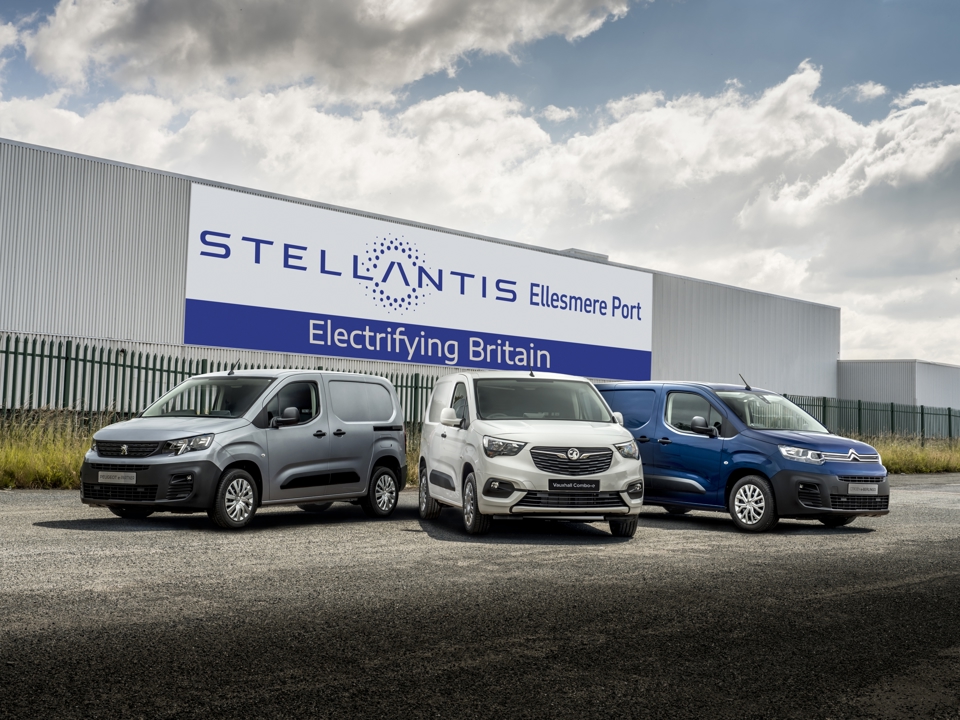The Society of Motor Manufacturers and Traders (SMMT) has called for a ‘van plan’ to help commercial vehicle (CV) owners make the switch to an electric vehicle (EV) – reducing the UK’s transport-related carbon emissions.
As the CV Show got underway at the NEC in Birmingham this morning (May 24), the industry body called for Government to introduce “commensurate and binding targets for charge points for passenger cars and commercial vehicles to match the commitments of the automotive industry”.
More than a third of all new van models are now available with a plug, but only one-in-20 buyers have switched to a battery powered van in 2022, the SMMT said, and uncertainty about charging infrastructure remains one of owners’ key concerns.
An SMMT survey by Savanta ComRes found that 57% of people who own or lease a van in the UK are worried that they wouldn’t be able to find a public charging point when they need it.
 “Britain’s businesses run on vans and if we’re to deliver the nation’s carbon emission cuts, we need them to move to electric,” said SMMT chief executive Mike Hawes.
“Britain’s businesses run on vans and if we’re to deliver the nation’s carbon emission cuts, we need them to move to electric,” said SMMT chief executive Mike Hawes.
“There’s an electric van to suit every business case, but we need a ‘van plan’ to ensure zero-emission driving works for the millions of people for whom their van is their livelihood and the millions more who rely on these workhorses for the delivery of their daily needs.
“The automotive industry is getting these new technology vehicles into the showrooms – we need government and other stakeholders to match our commitments to get them out on the road.”
Last year Stellantis ended months of uncertainty about the future of its manufacturing plant at Ellesmere Port with the announcement that it would become its European hub for zero-emissions van manufacture.
Just last month Ford launched its first fully electric commecial vehicle, the E-Transit.
At the other end of the scale, Citroen announced pricing for its My Ami Cargo last-mile urban CV solution today.
But van operators are still not convinced that life with an EV is viable in 2022 and the SMMT agreed, pointing out that there is currently just one public charge point available for every 32 plug-in vehicles on the road and few designed to accommodate CVs.
The SMMT’s recent survey reveals perceived battery capacity to be an influence on range anxiety, with 65% of respondents stating that longer battery range would encourage them to switch.
But it believes these fears may be overstated, with an average range on a single charge of an electric van now around 150 miles and just 6% of van owners stating that they exceeded this distance regularly, while four-out-of-five averaged less than 100 miles per day.
Electric van buyers currently benefit from the Plug-in Van Grant worth up to £2,500 for small vans and £5,000 for larger ones, as well as up to £350 towards installing a charge point at their place of work.
With homeowners no longer eligible for a home charging point grant, however, van owners who operate from home will need to pay the full price of up to £1,500.
The SMMT believes that more must be done to help CV owners make the switch to an EV for work.
It said: “Persuading van drivers to switch to zero emission vehicles is essential if Britain is to become net zero while keeping the nation on the move.
“Vans directly support around one-in-10 workers in Britain, acting as the essential workhorse for sectors such as construction and industry, trades such as plumbers, landscapers and cleaners, and home delivery services which grew rapidly during the pandemic.
“With more than four million vans on the road, electrifying the fleet will substantially reduce the UK’s transport-related carbon emissions, while also delivering cleaner air in cities.
“Those who switch can enjoy lower running costs, promote their environmental credentials and demonstrate sustainability when bidding for work.”















Login to comment
Comments
No comments have been made yet.